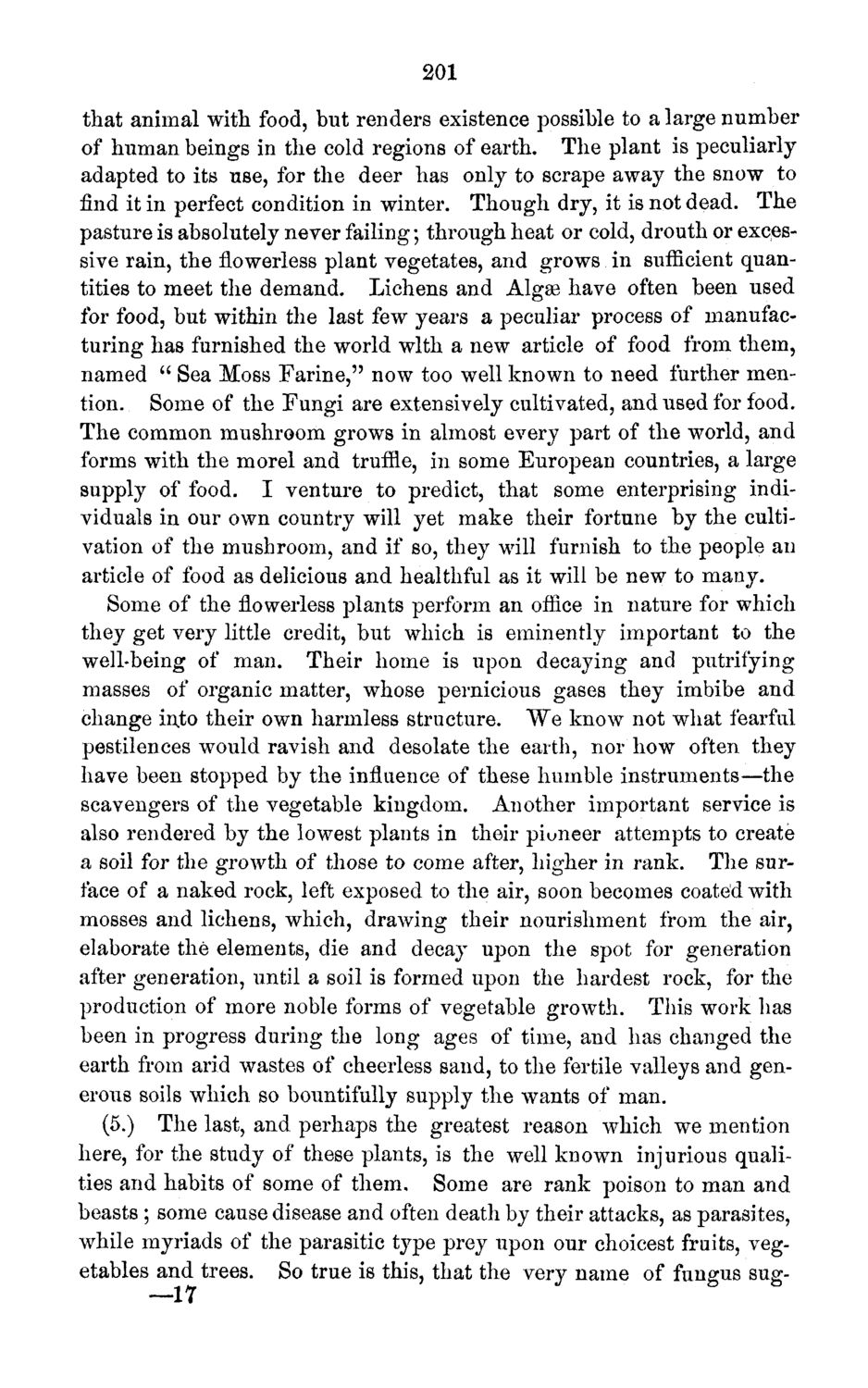| |
| |
Caption: Board of Trustees Minutes - 1871
This is a reduced-resolution page image for fast online browsing.

EXTRACTED TEXT FROM PAGE:
201 that animal with food, but renders existence possible to a large number of human beings in the cold regions of earth. The plant is peculiarly adapted to its use, for the deer has only to scrape away the snow to find it in perfect condition in winter. Though dry, it is not dead. The pasture is absolutely never failing; through heat or cold, drouth or excessive rain, the flowerless plant vegetates, and grows in sufficient quantities to meet the demand. Lichens and Algae have often been used for food, but within the last few years a peculiar process of manufacturing has furnished the world with a new article of food from them, named " Sea Moss Farine," now too well known to need further mention. Some of the Fungi are extensively cultivated, and used for food. The common mushroom grows in almost every part of the world, and forms with the morel and truffle, in some European countries, a large supply of food. I venture to predict, that some enterprising individuals in our own country will yet make their fortune by the cultivation of the mushroom, and if so, they will furnish to the people an article of food as delicious and healthful as it will be new to many. Some of the flowerless plants perform an office in nature for which they get very little credit, but which is eminently important to the well-being of man. Their home is upon decaying and putrifying masses of organic matter, whose pernicious gases they imbibe and change into their own harmless structure. We know not what fearful pestilences would ravish and desolate the earth, nor how often they have been stopped by the influence of these humble instruments—the scavengers of the vegetable kingdom. Another important service is also rendered by the lowest plants in their piuneer attempts to create a soil for the growth of those to come after, higher in rank. The surface of a naked rock, left exposed to the air, soon becomes coated with mosses and lichens, which, drawing their nourishment from the air, elaborate the elements, die and decay upon the spot for generation after generation, until a soil is formed upon the hardest rock, for the production of more noble forms of vegetable growth. This work has been in progress during the long ages of time, and has changed the earth from arid wastes of cheerless sand, to the fertile valleys and generous soils which so bountifully supply the wants of man. (5.) The last, and perhaps the greatest reason which we mention here, for the study of these plants, is the well known injurious qualities and habits of some of them. Some are rank poison to man and beasts ; some cause disease and often death by their attacks, as parasites, while myriads of the parasitic type prey upon our choicest fruits, vegetables and trees. So true is this, that the very name of fungus sug—17
| |